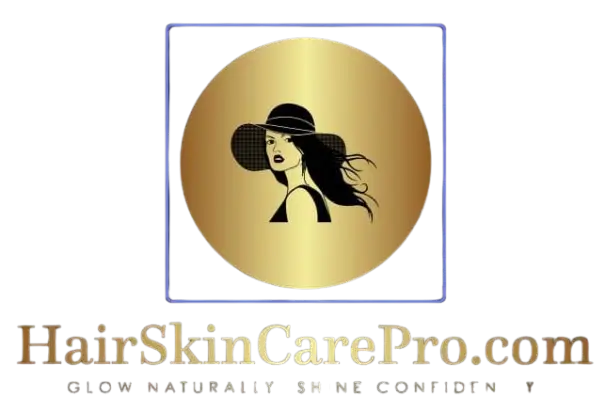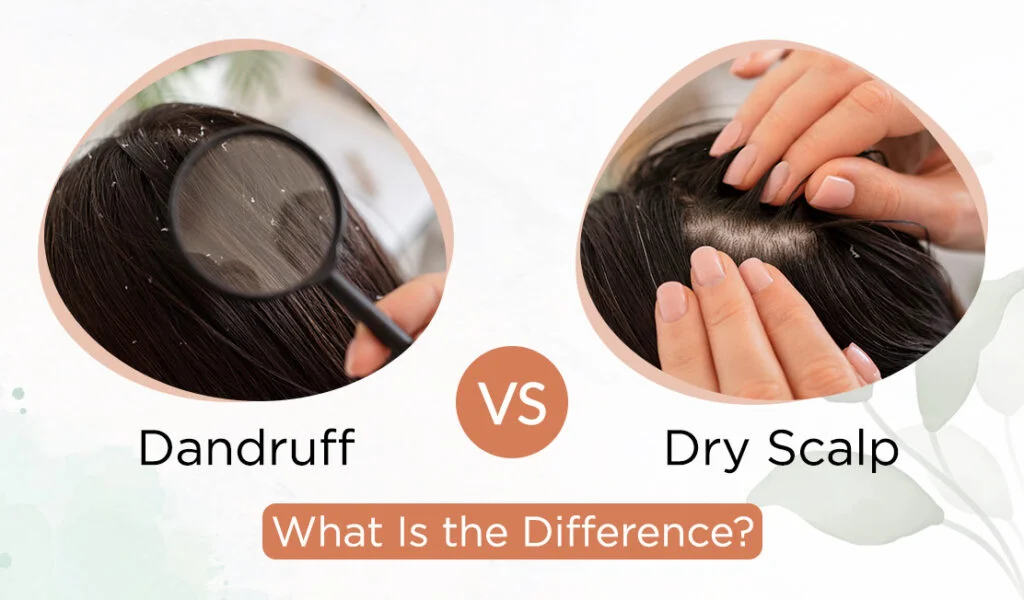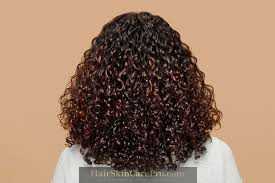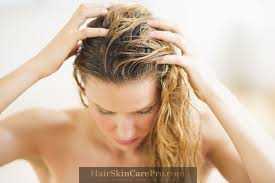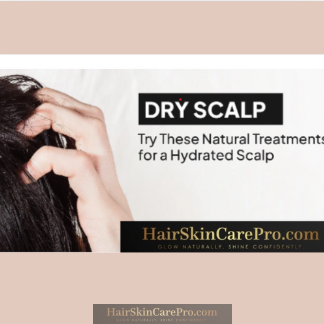Best Treatment for Dry Scalp
Introduction
Brief overview of the issue of dry scalp
Importance of addressing dry scalp for overall hair and scalp health
Preview of what the blog will cover
Understanding Dry Scalp
Definition and symptoms of dry scalp
Common causes (e.g., weather, skin conditions, hair care habits)
How dry scalp differs from dandruff
The Latest Trends and Research in Dry Scalp Treatment
Recent studies and findings on dry scalp
New ingredients and products making waves in the market
Expert opinions and recommendations
Effective Home Remedies for Dry Scalp
Natural oils (e.g., coconut oil, olive oil, jojoba oil)
DIY treatments (e.g., honey and avocado masks, aloe vera)
Benefits and potential downsides
Over-the-Counter Treatments
Top shampoos and conditioners for dry scalp
Key ingredients to look for (e.g., salicylic acid, ketoconazole)
User reviews and ratings(best treatment for dry scalp)
Prescription Treatments
When to see a dermatologist
Prescription options (e.g., corticosteroids, medicated shampoos)
Potential side effects and considerations
Lifestyle Changes to Prevent Dry Scalp
Diet and hydration
Stress management
Adjusting hair care routines (e.g., avoiding harsh chemicals, not over-washing hair)
Case Studies and Testimonials
Real-life experiences of individuals who have successfully treated dry scalp
Before and after comparisons
Lessons learned and tips from their journeys
Conclusion
Recap of key points
Encouragement to try different treatments to find what works best
Final thoughts on maintaining a healthy scalp
Introduction
Brief overview of the issue of dry scalp
Dry scalp is a common condition and one of the most common scalp issues that anyone can have at any age, but also one of the common scalp conditions that is known to be quite ignored. It happens when scalp moisture is not adequately maintained, causing irritation, flaking, the itch, etc. While these symptoms can be disturbing and sometimes embarrassing, they are usually treatable with proper treatment and care. There are many reasons for a dry scalp, including environmental factors, skin disorders, and suboptimal hair care.
Why it is Important to Manage Dry Scalp for Hair and Scalp Health
A healthy scalp will lead to healthy hair, so here’s how to keep it that way. Hair that is weak and prone to breakage can be caused when a dry scalp interrupts the hair growth cycle. Excessive scratching based on itchiness can damage hair follicles, causing hair loss. Treating a dry scalp is a crucial condition not only for improving comfort and confidence, but also for maintaining healthy hair.
So, this post will cover the details of dry scalp from causes to treatments. We want to discuss the most recent scalp care breakthroughs and new research, specifically new ingredients and products that are out there to treat dry scalp. A variety of options will be discussed, from simple home remedies to over-the-counter and prescription treatments. In addition, practical lifestyle advice and real-life case studies, to help you find your own path to a healthier scalp.
So, whether your scalp is just a little more scraggly than usual or you think you might have developed more severe scalp issues, this blog aims to help you understand the whys, and hows of how to smooth it out — to get (and keep) a nourished hydrated scalp.
By the end of this blog you will be well versed in dry scalp and a variety of what to do and not do in terms of prevention and management. Join us on the journey towards healthy scalps!
Understanding Dry Scalp
What dry scalp is, symptoms of dry scalp
What is dry scalp?Dry scalp is when skin on the scalp is lacking moisture, resulting in tightness, itchiness and discomfort. Common symptoms include:
Flakey skin: Tiny white flakes that fall off and possibly land on clothing.
- Chronic itching: Unrelenting itch from dryness.
- Can irritate skin: reddens and inflames the scalp.
Teeths making my head tight: Sensation of tightness of the skin in your scalp.
The extent of these symptoms can differ according to the underlying cause of dandruff and the health of the individual’s scalp.
Dry Scalp: Common Causes
Dry scalp can be triggered by a number of factors including:
- Weather: Cold, dry weather and low humidity can dry out the scalp.
- Skin Conditions: Skin conditions such as psoriasis, eczema, and seborrheic dermatitis may cause a dry scalp.
- Hair Care Practices: Overly frequent washing, harsh hardware shampoos, and overuse of styling products can all strip the scalp of natural oils.
- Dehydration: Not getting enough water can overall dry you out, including your scalp.
- Nutrient Deficiency: Deficiencies in vital nutrients such as omega-3 fatty acids, vitamin A, vitamin D, and zinc can affect scalp condition.
- Medical Conditions: Certain medical conditions like diabetes and thyroid disorders can also lead to dry scalp.
What’s the Difference Between Dry Scalp and Dandruff?
Dry scalp and dandruff are different conditions and require different causes and treatments:
Dry Scalp:
Cause: Most commonly due to insufficient moisture.
Flakes: Dry, small, white flakes.
Symptoms: Itchiness, tightness, and redness.
Dandruff:
Cause: Inflammation of the scalp as a result of overgrowth of yeast (Malassezia).
Flakes: Thick, oily, yellowish flakes.
Symptoms: Itching, oiliness and perhaps some redness or scaling.
It’s important to distinguish between these conditions to determine the right kind of treatment. Dandruff, however, usually needs antifungal treatments, although moisturizing measures can help dry scalp.
The Latest Trends and Research in Dry Scalp Treatment
Recent Advancements and Insights on Combating Dry Scalp Issues
Recent advances in dermatological research have shed light on new approaches to dry scalp management. However, a significant study details upon this concept — what role does the microbiome of the scalp help plays and what role does it play in hair and hair loss — carried out by the Northwestern University Feinberg School of Medicine. In this study it was shown that a topical treatment that combined probiotics, honey, turmeric and vitamin B12 was effective in reducing dry scalp symptoms. By to restore a healthy balance in the scalp microbiome, which is necessary to maintain a healthy scalp, this is new way of treating.
Additionally, a well-controlled clinical study of children with dry scalp also showed favorable results with the aforementioned topical solution. The data revealed a 91% reduction in itchiness, 81% reduction in dryness, 80% reduction in irritation, and 67% in flakiness, underscoring the potential of microbiome-friendly solutions as a game-changing approach to scalp health.
New Ingredients and Products Driving Growth in the Market
With the ever evolving world of scalp care comes new, high-tech ingredients and dynamic products designed to combat dry scalp. Here are some highlights worth noting:
- Probiotics: An emerging game-changing ingredient, probiotics are beneficial bacteria that help restore the natural balance of the scalp microbiome. Probiotics have gained popularity in products for their ability to relieve some dryness and irritation by promoting an overall better scalp environment.
- Honey: Known for its natural moisturizing and anti-inflammatory properties, honey is being added to a range of scalp treatments. Its humectant properties help sooth irritation and improve overall scalp health by keeping in moisture as well.
- Turmeric: Known for its powerful anti-inflammatory and antioxidant properties, turmeric has been incorporated into scalp care products. Turmeric-infused products aim at reducing inflammation and promoting healing, and are therefore an excellent addition to dry scalp treatment.
- Hyaluronic Acid: This powerful hydration powerhouse is now gaining popularity for use in scalp treatments, working to deeply hydrate and add elasticity to skin. By drawing in and binding to water, hyaluronic acid is superb for relief from dryness in the scalp and ensuring hydration.
- Ceramides: Key lipid molecules important for reinforcing the skin barrier and retaining hydration. Added ceramides in scalp treatments bolster the skin’s protective barrier, reducing dryness and irritation.
Industry Assessment and Professional Advice
The leading dermatologists and trichologists all endorse a multifaceted approach to dry scalp management. Here is what they recommend, as experts in the field:
- Gentle Hair Care: Avoid dryness of the scalp using sulfate-free shampoos and gentle hair maintenance products that don’t strip the scalp its natural oils.
- Proper Nutrition and Hydration [email protected]: The scalp needs nourishment via a diet high in omega-fats, vitamins A, D, E and zinc. 1. Appropriate hydration also moisturizes, including the scalp.
- Medical/Pharmaceutical Treatment: In particularly acute scenarios, dermatologists recommend topical corticosteroids, antihistamines, and medicated shampoos containing ketoconazole or salicylic acid. Disclaimer: You can use these methods only if you have mastered its proper usage and always seek a professional help for the same.
- Scalp Massages: Massaging the scalp frequently with oils like coconut, jojoba, or argan oil improves blood circulation, soothes the scalp, and causes moisture retention, creating a conducive environment.
- Reduce Stress and Be Mindful: Stress can aggravate scalp conditions. Engage in relaxation techniques such as meditation, yoga, or deep breathing exercises to relieve stress and promote healthy scalp.
The latest advances and research in dry scalp treatments focus on innovative ingredients and formulations that complement the microbiome of the scalp and a holistic perspective on scalp health. Patients just need to keep up-to-date on these advancements and to be in contact with experts, so that they can effectively treat and cure dry scalp their symptoms, resulting in a healthier and better scalp.
Effective Home Remedies for Dry Scalp
Utilizing Natural Oils
The best and proven solution to deal with the dry scalp includes the use of natural oils. In addition to providing deep hydration, these oils pack a lot of extra perks:
- Coconut Oil: Known for its antifungal and antimicrobial properties, coconut oil is a powerful hydrator that can enter deep into the scalp. It helps sooth irritation, minimize flakiness, and promotes healthy hair growth. For application, warm a bit of coconut oil and rub it over your scalp, letting it rest for at least 30 minutes or overnight and wash afterward.
- Olive Oil: Rich in antioxidants and vitamin E [8], olive oil strengthens the scalp and hair follicles. It also locks in moisture, keeping skin from getting dry and flaky. Rub warm olive oil onto the scalp, let it sit for 30-60 minutes, rinse well.
- Jojoba Oil: With its close resemblance to the sebum our skin secretes, jojoba oil is a fantastic moisturizer that can help even out oil production on the scalp. It also has anti-inflammatory benefits that may soothe an inflamed scalp. For best results, apply diatomaceous earth on the scalp and leave it on for a couple of hours or overnight before your shampoo routine.
DIY Remedies
Homemade others can be an inexpensive and effective method for dry scalp using homemade remedies with natural ingredients. Here are a few popular DIY remedies:
Recipe for Hair Masks and Rinse at Home
- Honey and Avocado Mask: Using honey’s humectant properties to help maintain moisture and avocado’s fatty acids and vitamins to nourish the scalp. To make the mask, mash half an avocado and mix with two tablespoons of honey. Massage the mixture throughout the scalp and hair and wash it off after 20-30 minutes with lukewarm water.
- Aloe Vera Treatment: Aloe vera is effective in tantalizing and moisturing the scalp, thus reducing the itching. Cut a leaf of aloe vera, scoop out a pulpy gel, and massage it over the scalp. Wait for 20–30 minutes and wash it off with a mild shampoo.
- Apple Cider Vinegar Rinse: Bringing the scalp’s pH back to equilibrium, while the antimicrobial elements of apple cider vinegar help fight dryness and flakiness. Combine equal parts apple cider vinegar and water, massage into scalp, leave for a few minutes then rinse.
Advantages and Aspects to Consider
Although these solutions have significant advantages, both pros and cons need to be considered:
Benefits:
- Economical Solution: DIY treatments made from natural oils and ingredients tend to be more economical than store-bought products.
- Natural Ingredients: Unlike harsh chemicals and additives, these remedies are made of natural ingredients.
- Diverse Coverage: Natural ingredients are associated with other benefits like antifungal, antibacterial, and anti-inflammatory properties.
Potential Drawbacks:
- Allergic Reactions: Some organic components might provoke allergic reactions in some people. Do patch test for any new treatment applied.
- Too Much: Using too many oils can lead to a greasy scalp so that you need to wash your hair more often, potentially diminishing your hydration strategy.
- Inconsistent Results: Natural treatments may not be effective for everyone, and results can vary based on the degree of severity of the dry scalp as well as different skin type.
All in all, here natural oils and DIY treatments offer a flexible and cost-effective approach to the problem of dry scalp. Incorporating these remedies into your hair care routine while being aware of any potential side effects can definitely allow you to attain a healthy scalp in a natural way.
Over-the-Counter Dry Scalp Remedies
Best Shampoos and Conditioners for Dry Scalp
OTC stands for over-the-counter and such products may provide sufficient relief for dry scalp. Above are some of the best options.Best treatment for dry scalp.
- Neutrogena T/Gel Therapeutic Shampoo, Extra Strength: This medicine is well-known for its ability to treat scalp conditions like psoriasis and seborrheic dermatitis; coal tar is effective at alleviating flakiness and itching.Best treatment for dry scalp.
- CeraVe Baby Wash & Shampoo: A mild, unscented formula that is gentle enough for sensitive skin. It has ceramides and hyaluronic acid to help repair the skin’s natural barrier and keep moisture in.Best treatment for dry scalp.
- LivSo Moisturizing Shampoo for Dry Hair & Scalp: Its glycolic acid, coconut oil, and zinc pyrithione formula works to exfoliate the scalp, while moisturizing it to prevent dryness and flakiness.Best treatment for dry scalp.
- Living Proof Restore Dry Scalp Treatment — Formulated with hyaluronic acid to hydrate and relieve dryness. There’s also vitamin B3 and a microbiome balancing complex to support scalp health.Best treatment for dry scalp.
- OGX Extra Strength Refreshing Scalp + Tea Tree Mint Shampoo: Known for its tea tree oil, peppermint oil, and witch hazel infusion, this shampoo gym-ifies your scalp with a cool tingly feeling and calms your itchiness.Best treatment for dry scalp.
- Neutrogena Soothing & Calming Healthy Scalp Shampoo: This men’s shampoo is formulated for dandruff relief and to soothe irritated scalp and contains pyrithione zinc.
- SACHAJUAN Scalp Shampoo, $30, this is great for dry scalp/ oily hair. Containing salicylic acid, climbazole, and piroctone olamine, it helps decrease dandruff while regulating oil production.Best treatment for dry scalp.
- This micro-exfoliating shampoo from Briogeo detoxifies the scalp with charcoal and coconut oil to get rid of impurities while also moisturizing.Best treatment for dry scalp.
- Vanicream Shampoo: A no-nonsense hypoallergenic shampoo without the most Best treatment for dry scalp.common types of irritants such as fragrances, dyes and parabens. It’s also scalp-friendly and moisture-preserving.Best treatment for dry scalp.
The Top Ingredients to Watch Out For
So, when choosing OTC treatments for dry scalp, looking for certain ingredients responsible for their efficacy is ideal:Best treatment for dry scalp.
- Salicylic Acid: This exfoliating agent helps remove dead skin cells and dry patches from the surface.
- Ketoconazole: An antifungal that can help control dandruff and soothe scalp itch and irritation.
- Tea Tree Oil– It is antifungal and antibacterial in nature that relieves itching and irritation.
- Aloe Vera: Hydrates and calms dry, itchy scalp.
- Peppermint Oil: Each of the peppermint oil will provide a cooling sensation and help reduce itchiness and irritation.
- Pyrithione Zinc: A naturopathic antifungal as well as antibacterial subunit to treat dandruff.
User Reviews and Ratings
- OGX Tea Tree Oil & Witch Hazel Dry Scalp Treatment: After using this treatment for two weeks people say they saw a huge reduction in redness and flakes. Tea tree oil and witch hazel also combine to ease and refresh the scalp.Best treatment for dry scalp.
- Selsun Blue Anti-Dandruff Moisturizing Shampoo: This is a relatively inexpensive and effective way to relieve dandruff and a dry scalp. It includes selenium sulfide, which helps address flakiness and itching.Best treatment for dry scalp.
- Per the sizes mentioned in article, here are some options to consider if you need to shake up your routine: Renpure Apple Cider Vinegar Plant-Based Dry Scalp Treatment: Users love this treatment for the natural ingredients that improve scalp health, all without the use of harsh chemicals. Apple cider vinegar balances the scalp’s pH and eases dryness.Best treatment for dry scalp.Best treatment for dry scalp.
- Kamedis Anti-Dandruff Paraben-Free Dry Scalp Treatment: Ideal for scalp psoriasis, seborrheic dermatitis and dandruff, this treatment uses botanicals including soapberry and indigowoad to minimize irritation and flakiness.Best treatment for dry scalp.
Unlike prescription options, most OTC treatments for dry scalp do not require a doctor’s appointment or a visit to the pharmacy. The right selection of ingredients along with positive user reviews and star ratings can help you find the perfect product for dry scalp condition.
When to Visit a Dermatologist
- You may want to visit a dermatologist if:
- Over-the-counter remedies have failed to help your symptoms after several weeks.
- You have serious itching, redness or swelling.
- You see ongoing flaking or scaling that won’t disappear.
- You think you may have an underlying condition such as scalp psoriasis or eczema.
Prescription Options
Dermatologists may prescribe:
- Corticosteroids: These may help decrease inflammation and relieve itching. They’re available in a number of formats, including shampoos, lotions, or foams.
- Medicated Shampoos: These may include ketoconazole, salicylic acid or coal tar to help treat dandruff and psoriasis.
- Topical Medications: This may include vitamin D analogs (such as calcipotriene) to assist in managing psoriasis.
- Phototherapy: One of the popular treatment of psoriasis is exposing the affected area with ultraviolet light.
- Oral Medications: In severe cases, doctors may prescribe oral medications such as apremilast.
Possible Side Effects and Other Considerations
- Corticosteroids: Extended use may cause skin atrophy, skin fragility, and increased susceptibility to infections.
- Medicated shampoos: Drying,-irritating or even allergic.
- Topical Medications: Can cause skin irritation or photosensitivity
- Light Therapy: Can cause temporary dryness or irritation of the scalp.
- Oral Medications: Systemic side effects may occur hence they are commonly used for severe cases.
As always, it’s best to discuss these options with a dermatologist to learn more about the best options for your individual condition.
Lifestyle Changes to Improve Your Scalp Health
Drinking Plenty of Water
Proper hydration is a foundational aspect of complete well-being, and it is also vital for keeping your scalp healthy. Drinking water keeps your body hydrated and your scalp moisturized from within. Dehydration results in dry skin, including your scalp — so try to drink at least 8 glasses of water per day. Keep in mind that keeping yourself hydrated aids in the functioning of every cell in your body, including those in your scalp and hair follicles.
Eating a Balanced Diet
In addition, Omega-3 fatty acids and other essential nutrients in the diet can have an important positive impact on scalp health. Omega-3s, gound in fatty fish like salmon and flaxseeds and walnuts, decrease inflammation and keep skin and hair healthy. Also make sure to eat plenty of vitamins A, C, D and E, zinc and biotin, which help keep your scalp and hair in tip-top shape.Understanding best treatment for dry scalp.
- Omega-3 Fatty Acids: To minimize inflammation and improve moisture.
- Vitamin A and E: These vitamins promote skin health.
- Biotin and Zinc: Help with hair growth and scalp health.
Reducing Stress
If you have a dry scalp, dandruff or hair loss, chronic stress will only compound these issues. Practicing mindfulness and relaxation techniques can also be good ways to manage stress levels in your daily life. Mindfulness activities — including meditation, yoga, deep breathing exercises and exercise in general — can also lower stress and have a positive effect on the scalp.
- Mindfulness Meditation: Reduces stress and increases general well-being.
- Yoga: Involves physical postures, breathing exercises, and meditation.
- Regular Exercise: Improves mood and lowers stress hormones.
Conclusion
Dry scalp is something to be dealt with for the good health. You see, a healthy scalp is paramount to healthy hair, and a good scalp is comfortable without a lot of flakes. In this article, we will discuss the causes and symptoms of dry scalp, effective treatments, and lifestyle changes to help you regain and maintain a healthy scalp.Understanding best treatment for dry scalp.
Keep in mind that everyone is different, and due to that fact, scalp health will not be something that everyone can agree on. You have to siwtch it up and see what works for you. So, whether you turn to over-the-counter products, natural remedies, or pursue prescription treatments, there are numerous alternatives to explore.Understanding best treatment for dry scalp.
A healthy scalp, after all, is the start of healthy hair. With some extra care for your scalp, we can all have thick, glossy, gorgeous hair. So continue the quest for better scalp health; you will find what is right for you!
Sure! Answering 20 FAQs(Frequently Asked Questions) regarding the best treatment of dry scalp:
Frequently Asked About best treatment for dry scalp
What is the best cure to dried up scalp?best treatment for dry scalp?
There is no one-size-fits-all answer todry scalp because it is caused by a variety of factors, but usually the best treatments are moisturizing shampoos, natural oils and the avoidance of harsh hair care products.
How do I stop dry scalp naturally?best treatment for dry scalp?
You can also try to avoid a dry scalp by drinking sufficient amounts of water, washing with gentle, sulfate-free shampoos, and using wholesome natural oils, such as coconut or jojoba oil, in your hair products.
Which natural oils are effective for dry scalp treatment?best treatment for dry scalp?
Some of the best natural oils for dry scalp treatment are coconut oil, olive oil and jojoba oil which are known for their moisturizing and anti-inflammatory properties.
Is there any home remedy for dry scalp?best treatment for dry scalp?
Yes, home remedies like honey and avocado masks, aloe vera gel and apple cider vinegar rinses can be very useful for dry scalp treatment.
Do over-the-counter shampoos help with dry scalp?best treatment for dry scalp?
Yes, over-the-counter shampoos formulated with ingredients such as salicylic acid, ketoconazole and tea tree oil can help relieve dry scalp symptoms.
When to see a dermatologist for dry scalp?best treatment for dry scalp?
If topical treatments aren’t working, or if you have extremely itchy rashes, redness or persistent flaking, see a dermatologist.
What are prescription treatments for dry scalp?best treatment for dry scalp?
For mild cases of dry scalp, dermatologists may recommend corticosteroids, medicated shampoos, or topical medication.
Can diet affect dry scalp?best treatment for dry scalp?
– Yes, a diet rich in omega-3 fatty acids, vitamins A, D and E and zinc can contribute to the health of the scalp and prevent dryness.
If I have dry hair, how often should I wash my hair?best treatment for dry scalp?
→ It’s best to shampoo your hair two or three times a week with a gentle, moisturizing (rather than a clarifying) shampoo, so as not to strip the scalp of its natural oils.
Can stress cause dry scalp?best treatment for dry scalp?
Yes, stress may contribute to scalp conditions, including dryness. Relaxation techniques to manage stress can benefit scalp health.
Is there dandruff and dry scalp shampoo which is unique?
Dandruff yes, which shampoos with ‘dandruff busters’ like ketoconazole or zinc pyrithione can help with both dry scalp and dandruff.
How do I know if I have dry scalp or dandruff?best treatment for dry scalp?
Dry scalp typically results in small, white flakes from a lack of moisture, whereas dandruff flakes are larger, greasy, and yellow; often they’re due to an overgrowth of yeast.
The best shampoo for dry scalp should contain what ingredients?best treatment for dry scalp?
Find shampoos for dry scalp with salicylic acid, ketoconazole, tea tree oil, aloe vera, and pyrithione zinc.
Can dry scalp be worsened by hot showers?
Yes, hot water can dry out the scalp and remove the natural oils, which can cause excess dryness. When shampooing your hair, it’s best to use lukewarm water.
Is overnight use of coconut oil on the scalp safe?
Yes, overnight application of coconut oil helps moisturize the scalp deeply and relieves dryness. Just make sure you wash it out well in the morning.
How does scalp massages help for dry scalp?
– Indeed, regular scalp massages with natural oils can boost blood circulation, aid relaxation, and assist in even distribution of natural oils.
Lifestyle changes to help dry scalp.
Staying hydrated, maintaining a healthy diet, managing stress, and avoiding harsh hair-care products can reduce dry scalp.
How can climate influence dry scalp?best treatment for dry scalp?
Yes, cold, dry air and overexposure to heat or air conditioning can certainly exacerbate dry scalp.
How does hydration impact dry scalp prevention?best treatment for dry scalp?
Staying hydrated keeps moisture levels of the scalp balanced and hence prevents dryness and flakes from forming.
Do some hairstyles or hair accessories lead to dry scalp?best treatment for dry scalp?
Certain tight hairstyles and hair accessories can place pressure on the scalp and dry it out. Wear loose styles and steer clear of accessories that rub.
Ultimate Guide to Scalp Health: Tips, Treatments, and Home Remedies for a Healthy Scalp 1.
